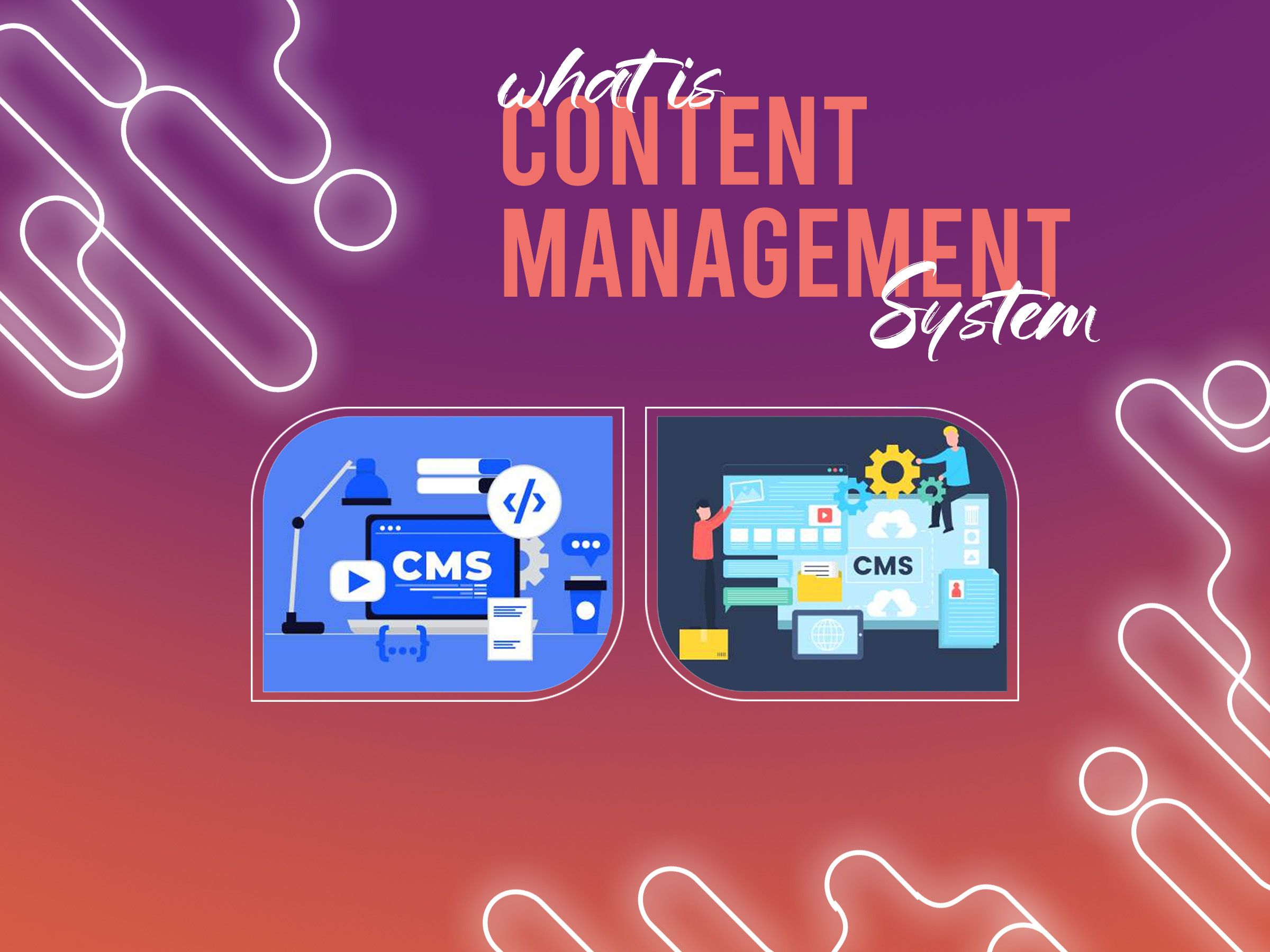The Content Management System (CMS) is a software application allowing users to manage digital content through an interface without advanced programming knowledge. A CMS provides people with a simple interface to create and control efficiently content no matter what type of platform they need to manage.
Users can run websites without manual complex programming through the implementation of a CMS. The system enables users with no programming background to easily work on website content through its user-friendly design.
How Does a Content Management System Work?
A CMS consists of parallel front-end and back-end functionalities.
Front-End: Front-end functions as the visual section through which website visitors establish interactions with a website. CMS themes or templates control all aspects related to layout design and user experience within the system.
Back-End: Users access the administrative panel named Back-End to create modify and control content for their website. The system allows site owners to use dashboards for scheduled post-publication and analytic monitoring and customization of site parameters.
Most CMS platforms come with a WYSIWYG (What You See Is What You Get) editor, which enables users to work on content and design format text along with image addition and video embedding without needing programming skills.
CMSs enable the storage of different media types that encompass PDFs along with GIFs and interactive elements. Content stored in the CMS database maintains a structured format which enables smooth retrieval and webpage displaying functionality. A version control feature allows users to track changes and restore previous versions when needed.
Key Features of a CMS
A high-quality CMS provides several essential features, including:
- User-Friendly Interface: Drag-and-drop functionality and easy-to-navigate dashboards.
- Content Editing & Publishing: A built-in editor for text formatting, image uploads, and multimedia integration.
- SEO Tools: Features like meta tags, sitemaps, and URL customization to enhance search engine visibility.
- Customization & Themes: Pre-built templates and themes for aesthetic and functional flexibility.
- Plugins & Extensions: Add-ons that enhance functionality, such as eCommerce integration or social media sharing.
- Security & User Permissions: Role-based access control to safeguard sensitive data.
- Scalability: Ability to handle growing content and traffic demands.
Benefits of Using a CMS
A CMS has multiple advantages for businesses and individuals looking to establish an online presence:
- No Coding Required: Even non-technical users can create and manage websites, reducing dependency on web developers.
- Time Efficiency: Reduces time spent on website updates and maintenance, allowing businesses to focus on growth and strategy.
- SEO Optimization: Helps improve search engine rankings with built-in SEO tools like meta tags, custom URLs, and keyword optimization.
- Cost-Effective: minimizes the need for hiring developers for every update, reducing operational costs.
- Collaboration Friendly: Multiple users can work on the site simultaneously with different permission levels, streamlining workflow and content approvals.
- Consistent Branding: Ensures uniform design and branding across all pages, maintaining professionalism and user experience.
- Mobile Responsiveness: Many CMS platforms offer mobile-friendly templates, ensuring an optimized experience across all devices.
Why Should You Use a CMS?
If you’re a business owner, blogger, or marketer, using a CMS is essential for managing your website efficiently. It empowers you to control your content strategy, update information in real time, and scale your website as your business grows. Additionally, CMS platforms support third-party integrations, including CRM tools, email marketing software, and analytics dashboards.
Which is the Best CMS Platform?
The best CMS depends on your business needs, budget, and technical expertise. Here’s a quick comparison of the top options:
- WordPress: WordPress stands as the most frequently used CMS because it provides flexibility, extends through many plugins, and supports search engine optimization effectively. Suitable for blogs, business websites, and eCommerce with WooCommerce integration.
- Shopify: A special-purpose eCommerce Content Management System makes it easy for businesses to create their online storefronts. Built-in payment processing along with inventory management and SEO tools form part of its standard features.
- Drupal: A powerful and secure CMS, best suited for complex websites requiring high levels of customization and security. Used by large organizations and government institutions.
- Wix: A beginner-friendly, drag-and-drop website builder offering an all-in-one solution for small businesses, freelancers, and creatives.
- Joomla: User experiences extended flexibility from this platform at the cost of needing some technical proficiency. Businesses together with developers would find Drupal suitable as it bridges the gap between Drupal and WordPress platform options.
Read this blog post: What Makes a Website Accessible
Examples of Popular Content Management Systems
- WordPress: Powers over 40% of websites worldwide, making it the most widely used CMS globally.
- Magento: A leading CMS for large-scale eCommerce businesses, offering powerful customization options and scalability.
- Squarespace: A premium, design-focused CMS known for its sleek templates and ease of use, making it ideal for creatives and portfolio websites.
- HubSpot CMS: Integrated with CRM tools, making it a strong choice for businesses focused on inbound marketing and automation.
- BigCommerce: Designed for growing online stores, offering advanced eCommerce features, multi-channel selling, and scalability.
Read this blog post, if you want to create an online portfolio
Conclusion
A Content Management System (CMS) is a game-changer for businesses looking to create, manage, and grow their online presence efficiently. The selection of an appropriate CMS serves business owners or large enterprises to efficiently control websites optimize search engine rankings and increase user engagement.
Business owners should choose their CMS from available options based on their operational requirements scalability requirements and user experience needs. Your time and money as well as effort expenditures decrease by using a CMS that maintains your site up-to-date with market competition.
If you are looking for marketing services like SEO, and development at reasonable prices, Meta Techverse is here, we provide a wide range of development and marketing services to our customers, so contact us today and take your business to the next level.





















